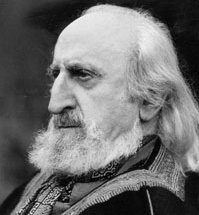[2012, Echoes of Perennial Wisdom, World Wisdom, 38, 978-1-93659700-0]
God, Beauty
Frithjof Schuon: Frases em inglês
[2005, Stations of Wisdom, World Wisdom, 102, 978-0-94153218-1]
God, Reverential fear and love
Fonte: Spiritual Perspectives And Human Facts
Fonte: Esoterism as Principle and as Way
The Transcendent Unity of Religions (1953; revised edition 1984)
The Transcendent Unity of Religions (1953; revised edition 1984)
The Transcendent Unity of Religions (1953; revised edition 1984)
The Transcendent Unity of Religions (1953; revised edition 1984)
The Transcendent Unity of Religions (1953; revised edition 1984)
“What most men do not know - and if they could know it, why could they be called on to believe it?”
Is that this blue sky, though illusory as an optical error and belied by the vision of interplanetary space, is nonetheless an adequate reflection of the Heaven of the Angels and the Blessed and that therefore, despite everything, it is this blue mirage, flecked with silver clouds, that is right and will have the final say; to be astonished at this amounts to admitting that it is by chance that we are here on earth and see the sky as we do.
Understanding Islam (1963)
[2006, Light on the Ancient Worlds, World Wisdom, 9, 978-0-941532-72-3]
Miscellaneous, Modernity
[1998, Understanding Islam, World Wisdom, 26, 0-941532-24-0]
Miscellaneous, Modernity
Subjectively speaking, the essence of philosophy is certitude; for the moderns, on the contrary, the essence of philosophy is doubt: the philosopher is supposed to reason without any premise (voraussetzungsloses Denken), as if this condition were not itself a preconceived idea; this is the classical contradiction of all relativism. Everything is doubted except for doubt. The solution to the problem of knowledge − if there is a problem − could not possibly be this intellectual suicide that is the promotion of doubt; on the contrary, it lies in having recourse to a source of certitude that transcends the mental mechanism, and this source − the only one there is − is the pure Intellect, or Intelligence as such.
[2005, The Transfiguration of Man, World Wisdom, 3, 978-0-94153219-8]
Miscellaneous, Philosophy
[2006, Light on the Ancient Worlds, World Wisdom, 27, 978-0-941532-72-3]
Miscellaneous, Religion
[1993, The Transcendent Unity of Religions, Quest Books, xxxi, 978-0-8356-0587-8]
Miscellaneous, Religion
[2003, The Play of Masks, World Wisdom, 12, 978-0-94153214-3]
Miscellaneous, Religion
[1995, Norms and Paradoxes in Spiritual Alchemy, Sophia: The Journal of Traditional Studies, 1, 1, 8]
Miscellaneous, Revelation
[2006, Light on the Ancient Worlds, World Wisdom, 117, 978-0-941532-72-3]
Miscellaneous, Revelation
“There is no access to the Heart without the virtues.”
[2012, Echoes of Perennial Wisdom, World Wisdom, 16, 978-1-93659700-0]
Spiritual path, Virtue
“Every virtue is a participation in the Beauty of the One and a response to His Love.”
[2012, Echoes of Perennial Wisdom, World Wisdom, 20, 978-1-93659700-0]
Spiritual path, Virtue
[2012, Echoes of Perennial Wisdom, World Wisdom, 17, 978-1-93659700-0]
Spiritual path, Virtue
[2013, From the Divine to the Human, World Wisdom, 127-128, 978-1-936597-32-1]
Miscellaneous, Revelation
[2012, Echoes of Perennial Wisdom, World Wisdom, 65, 978-1-93659700-0]
Spiritual path, Virtue
[2006, Gnosis: Divine Wisdom, World Wisdom, 116-117, 978-1-933316-18-5]
Spiritual path, Holiness
[2012, Echoes of Perennial Wisdom, World Wisdom, 13, 978-1-93659700-0]
Spiritual path, Holiness
[2012, Echoes of Perennial Wisdom, World Wisdom, 16, 978-1-93659700-0]
Spiritual path, Virtue
“Humanly, no one escapes the obligation to "believe in order to be able to understand"”
credo ut intelligam
[2013, From the Divine to the Human, World Wisdom, 33, 978-1-936597-32-1]
Spiritual life, Faith
[2014, In the Face of the Absolute, World Wisdom, xii, 978-1-936597-41-3]
Human being, Specificities
